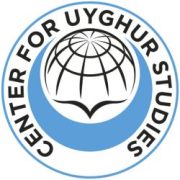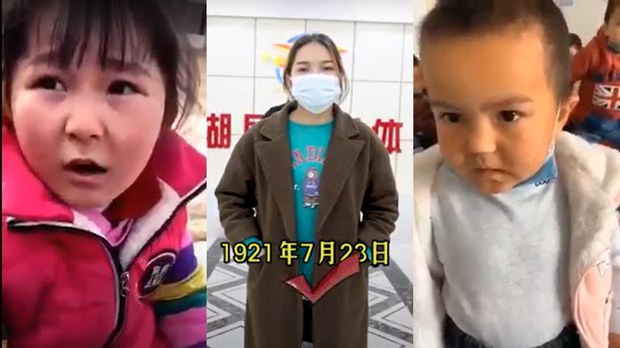By Dareen Khaled*
In the far-western reaches of China, Uyghurs stand as a grim testament to one of the most egregious human rights crises of our time. Here, the Chinese government, under the pretense of counter-terrorism, has orchestrated a systematic campaign to suppress the Uyghur Muslims, stripping away not just their rights but the very essence of their cultural and familial bonds. At the heart of this ethnic cleansing and genocide lies a particularly harrowing aspect: the forced separation of Uyghur children from their families.
This practice is not a mere byproduct of policy but a deliberate and calculated strategy to erode the Uyghur identity. Since 2014, the situation has escalated alarmingly. The Chinese government’s repressive measures have seen a dramatic increase, with reports indicating that a million or more Uyghurs have been arbitrarily detained in “transformation-through-education” centers, subjected to torture, political indoctrination, and a systematic campaign of forced assimilation.
In this landscape of terror, Uyghur children are wrenched from their parents’ arms and placed in state-run institutions, where their language, beliefs, and cultural heritage are systematically obliterated. This article aims to shed light on this atrocious violation of human rights and to amplify the voices that cry out against this unspeakable injustice.
Historical and Political Context
The plight of the Uyghur people in East Turkistan (also referred to as Xinjiang by Chinese authorities, a term rejected by Uyghurs) is not a sudden eruption but a consequence of a long history of oppression and marginalization. Uyghurs, predominantly Muslim Turkic people, have historically faced systematic discrimination in China. Their struggle for cultural and religious autonomy has been met with relentless suppression by the Chinese government.
In 2014, this simmering tension took a drastic turn. Under the guise of combating “religious extremism” and a so-called “People’s War on Terror,” China initiated an intensified crackdown in East Turkistan. The region, rich in cultural diversity, was subjected to an increasingly pervasive and intrusive surveillance state. This campaign, ostensibly targeting terrorism, was in reality a thinly veiled attempt to control and assimilate the Uyghur population.
The situation further deteriorated in 2017, as the Chinese government’s draconian policies metamorphosed into an outright assault on Uyghur identity. An estimated 1.8 million Uyghurs and other Muslim minorities were incarcerated in a sprawling network of detention camps, euphemistically labeled as “transformation-through-education” centers or “vocational training” facilities. Here, detainees were subjected to systematic torture, political indoctrination, and forced cultural assimilation. The Chinese state’s actions were not just a crackdown on perceived dissent but an attempt to erase an entire culture, to rewrite the ethnic and cultural landscape of East Turkistan.
Mechanisms of Separation
At the epicenter of China’s brutal repression in East Turkistan lies a particularly insidious tactic: the systematic separation of Uyghur children from their families. This abhorrent practice serves as a cornerstone of China’s campaign to erase Uyghur cultural identity and enforce a homogeneous Han Chinese ideology.
In this calculated strategy of cultural genocide, the Chinese state has weaponized education. The Chinese government’s assimilation process starts with detaining parents under above-mentioned arbitrary claims, placing them in detainment camps and leaving children defenseless and vulnerable. Children whose parents are detained, in prison, or undergoing re-education or “training” are classified into a special needs category, making them eligible for state care, which typically means placement in these orphanages or boarding schools. The Chinese government ramped up the establishment of state-run boarding schools throughout East Turkistan, where Uyghur children are forcibly enrolled whether or not their parents have been taken away. Here they undergo a relentless process of Sinicization. Instruction is almost exclusively in Mandarin, with the Uyghur language and cultural practices being aggressively and outright banned. The aim is clear and chilling: to mold these young minds into loyal subjects of the state, devoid of their ethnic and cultural roots.
In these schools, children are isolated from their families and communities, stripping them of their familial bonds and cultural heritage. The UN experts have raised grave concerns over the large-scale removal of children from their families, including those whose parents are exiled or detained. This separation and the subsequent forced assimilation into Han cultural practices are not just a violation of family life but a direct assault on Uyghur identity.
Further exacerbating this tragedy is the closure of local schools that provided education in Uyghur and other minority languages, as reported by scholars and human rights organizations. This deliberate act of eradicating educational institutions that nurture Uyghur identity only highlights the sinister nature of Beijing’s policies in East Turkistan.
The world must not turn a blind eye to this atrocity. The forced separation of Uyghur children from their families under the guise of education is a blatant violation of human rights and a grim reminder of the extent to which authoritarian regimes will go to suppress and assimilate ethnic minorities. It is an appalling strategy aimed at erasing an entire culture, a violation of the fundamental human right to maintain one’s cultural heritage and familial ties. This is not just a regional issue; it is a humanitarian crisis that calls for global condemnation and urgent action.
Legal and Human Rights Perspective
The forced separation of Uyghur children from their families in East Turkistan is not only a profound human tragedy but also a blatant violation of international law and human rights. This systematic campaign of ethnic cleansing by the Chinese government stands in stark defiance of the United Nations Convention on the Rights of the Child, which China ratified in 1992. The convention explicitly stipulates that children should not be separated from their parents against their will, emphasizing the importance of considering the child’s best interests in all actions concerning children.
Moreover, these actions constitute a gross violation of the right to education without discrimination, as noted by UN experts. The shift to Mandarin-dominated education in boarding schools, coupled with the closure of local schools teaching in Uyghur, blatantly undermines the right to education in one’s mother tongue, a key aspect of cultural rights.
Furthermore, the policies implemented by the Chinese state in East Turkistan contravene the principles of freedom of expression and privacy in family life. By forcibly placing children in state-run institutions and restricting communication with their families, the Chinese government is violating basic human rights that allow children to maintain regular personal relations and direct contact with their parents.
The international community, including human rights organizations and legal experts, has repeatedly condemned these actions. The deprivation of Uyghur children’s rights to their cultural identity, family life, and freedom of expression is a clear indication of the Chinese government’s disregard for international human rights norms and its obligations under global human rights treaties. The severity and scale of these violations demand an urgent and robust response from the global community to hold the Chinese government accountable and ensure the protection of these fundamental rights for the Uyghur population.
International Response and Advocacy
The international outcry against the Chinese government’s egregious human rights violations in East Turkistan has been growing, yet remains insufficient in the face of the severity of the crisis. The UN, human rights organizations, and several governments have condemned the systematic separation of Uyghur children from their families. UN experts have expressed grave concerns over the assimilationist policies in China’s boarding schools and the closure of local schools that provided education in Uyghur.
Human rights activists have vehemently criticized China’s actions, urging UN member states to recognize these acts as genocidal and to reject China’s bid for re-election to the UN Human Rights Council. Moreover, the United States government has identified the situation in East Turkistan as a continuation of genocide and crimes against humanity, leading to the blacklisting of companies involved in exploiting Uyghur forced labor.
This global response, while significant, still demands more substantial and concerted action. The international community must not only recognize but also actively respond to these human rights abuses with tangible measures to hold the Chinese government accountable and to provide relief and justice for the Uyghur people.
It is imperative for the international community to unequivocally condemn these actions and to take decisive steps to hold the Chinese government accountable. Governments, international organizations, and civil societies across the globe must unite in their efforts to end this appalling human rights violation. We must all advocate for the rights of these children to be reunited with their families, to preserve their cultural identity, and to live free from fear and oppression. The plight of the Uyghur families in East Turkistan is a test of our collective moral resolve – one we cannot afford to fail.
*Dareen Khaled is a researcher at Center for Uyghur Studies.
Copyright Center for Uyghur Studies - All Rights Reserved

